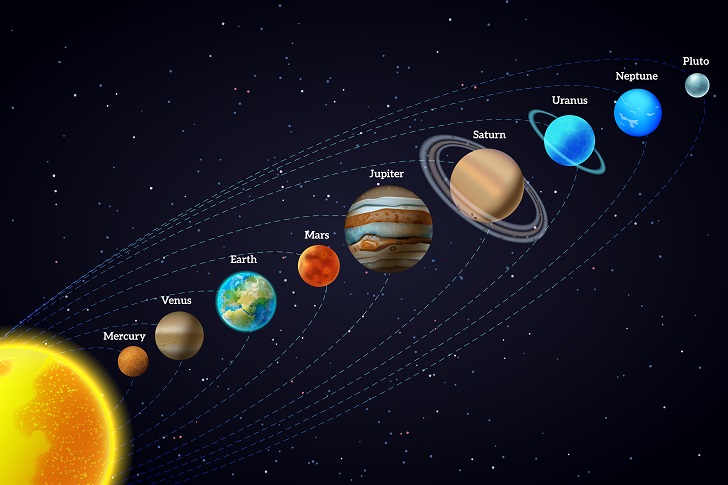Mercury retrograde is often greeted with a mix of curiosity and caution. Known for its apparent backward motion in the sky, this astrological event can significantly impact our daily lives, particularly in areas ruled by Mercury, such as communication, travel, and technology. This phenomenon occurs three to four times a year, each lasting about three weeks, during which it’s advisable to tread carefully with new ventures and communication. So, what happens when mercury is in retrograde? This comprehensive guide will explore everything you need to know about Mercury Retrograde. What Happens When Mercury Is in Retrograde? What happens when Mercury is in retrograde might feel like the universe is pressing a pause button on your plans....
Cosmic rays, mysterious particles from the cosmos, have captivated scientists and astronomers alike with their enigmatic origins and profound implications for understanding the universe. These particles, traveling at nearly the speed of light, bring tales from the far reaches of space right to our doorstep. What Are Cosmic Rays? Cosmic rays are not rays at all but rather incredibly fast-moving particles that originate from outer space. Predominantly made up of protons, these particles are remnants of atoms stripped of their electrons, revealing their bare nuclei. Earth is bombarded daily by trillions of these particles, though most are harmlessly deflected by our planet's atmosphere and magnetic field. When cosmic rays do collide with atmospheric particles, they generate...
When diving into the realm of Vedic Astrology, the significance of your Moon sign in unveiling your collective essence is profound. Overshadowed by the Sun sign, your Moon sign commands the spotlight, governing your minds and encapsulating your emotional and subconscious realms. This private side, reflective of your secrets, emotional responses, and intrinsic reactions to life's multifaceted situations, offers a deeper insight into who you truly are, individually and together. Let's embark on a journey through the zodiac, exploring how each Moon sign reflects on your true selves, guiding behaviors, emotions, and life choices. Aries Moon Sign If your Moon is in Aries, you're brimming with passion, embodying a self-driven and focused demeanor. You thrive on...
In the quest for understanding the cosmic compatibility with our partners, the term Moon conjunct Venus synastry is a celestial beacon of hope, suggesting a profound connection that could be the deciding factor in meeting your soulmate. But what does this aspect entail, and how does it influence your relationship's potential longevity and depth? Let's dive into the stars to uncover the magic behind this astrological alignment. The Foundation of Synastry Before we explore the luminous path of Moon conjunct Venus synastry, let's lay down the basics. Astrology offers us a unique lens through which we can view our relationships' dynamics by comparing birth charts, a technique known as synastry. This method goes beyond the superficial...
Astrology provides a unique perspective on our personality and destiny, with Saturn playing a key role. This celestial body, known for its rings, is often overshadowed by more luminous planets but significantly influences our life's trajectory. Saturn symbolizes discipline, limitations, and responsibilities, guiding us through maturity. Understanding its place in our birth chart reveals crucial life lessons. Embracing Saturn in Aries can lead to profound personal growth and transformation. Understanding Saturn in Your Birth Chart Saturn acts as a stern teacher, emphasizing structure and order in our lives. It represents authority figures, from parents and teachers early in life to bosses and mentors as we age. Saturn's sign and house in your birth chart highlight areas...
Astrology isn't just about knowing your sign and checking your horoscope over breakfast. It's like having a friend in the cosmos, giving you little nudges and whispers on how to navigate your day. Whether you're a skeptic or a believer, there's something undeniably fun and intriguing about letting the universe guide you. So, let's dive into some practical tips to make astrology work in your everyday life, no telescope needed. Understanding Your Birth Chart Your birth chart is like your cosmic fingerprint, unique only to you. It maps out where all the planets were at your exact moment of birth. Knowing your Sun, Moon, and Rising signs is a great start; they tell you about your...
Where Are We in the Universe? Here’s What You Need to Know About Earth as a Planet
Have you ever looked up at the night sky and wondered Where are we in the universe? This question brings forth feelings of wonder and perhaps a touch of existential awe. This comprehensive guide will explore our place in the cosmos and why Earth stands out in the vast expanse of space.
Our Solar System’s Structure
Situated in a sprawling universe that continues to expand, we find our home on a small, rocky planet known as Earth. Nestled within the Solar System, Earth shares this celestial neighborhood with seven other planets and three dwarf planets. These celestial bodies orbit the Sun, a relatively average-sized star, which forms the center of our Solar System.

Macrovector | Freepik | Nestled within the Solar System, Earth shares this celestial neighborhood with seven other planets and three dwarf planets.
The Milky Way: Our Galactic Home
Zooming out beyond the Solar System, Earth is part of the Milky Way Galaxy—a spiral-shaped galaxy with several arms, one of which cradles our Solar System. The Milky Way is just one of billions of galaxies in the universe, each containing millions to billions of stars and an even more significant number of planets. This makes our galactic address a pinpoint in the vast cosmic ocean and a dynamic part of a much larger celestial structure.
Where Are We in the Universe?
So, where are we in the universe? Earth occupies a small, almost negligible space in the grand scheme of things. Our planet is situated in the Orion Arm of the Milky Way, which is about 27,000 light years from the galactic center. This position gives us a unique vantage point to observe the rest of our galaxy and the universe beyond.

Robert Lea | MSN | Earth is situated in the Orion Arm of the Milky Way, which is about 27,000 light years from the galactic center.
What Makes Earth Unique in the Solar System?
Earth holds a special status among the various planets in our solar system due to its life-sustaining properties and dynamic geological characteristics.
The Only Known Planet with Life
Earth is the only known planet to harbor life, a distinction that remains unparalleled in our cosmos exploration. This uniqueness is mainly due to its environment, which supports water in its three states—solid, liquid, and gas—a critical element for life as we know it.
Distinct Seasons and Geophysical Features
Earth’s axial tilt of 23.5 degrees is responsible for the distinct seasons we experience, providing a varied environment that has influenced biodiversity and ecological complexity. Furthermore, Earth’s geology is marked by a thin crust divided into tectonic plates and a substantial iron core, characteristics that contribute to its magnetic field and tectonic activities, shaping the planet’s surface over millennia.
While other planets in our solar system also exhibit seasons due to their axial tilts, none combine these features with the presence of life and water, making Earth a unique study in contrast and balance within the solar system.
Understanding our place in the universe expands our knowledge and enriches our appreciation for the delicate balance that makes Earth uniquely capable of supporting life. As we continue to explore the cosmos, each discovery brings us closer to understanding where we are and how we are connected to the vast universe around us.














